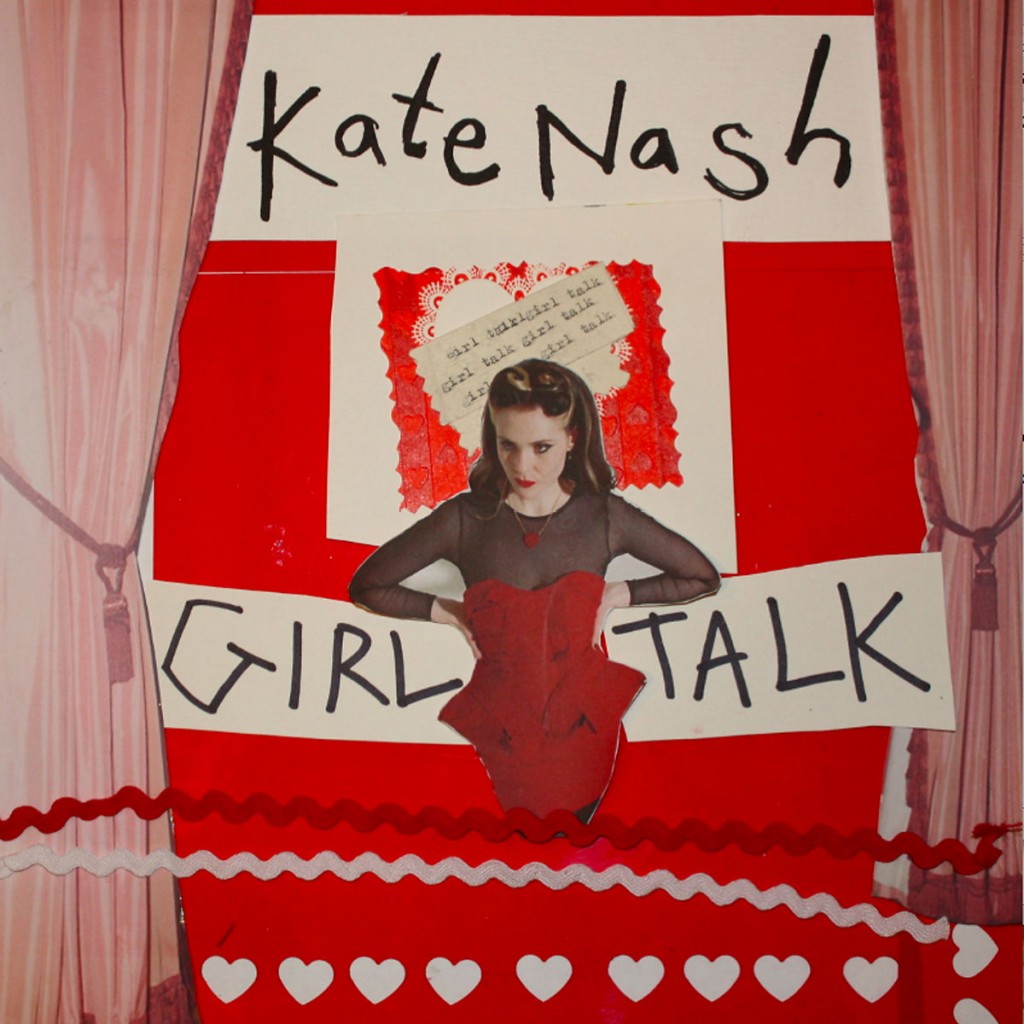 In the years since Britain’s indie-pop queen Kate Nash’s international debut in 2007 with her breakout album “Made of Bricks,” the singer has become known for her signature plucky style. After a three-year period of dabbling in charity, films and feminist advocacy, Nash returns to the music scene with her third album “Girl Talk.” The bold and quirky songs that raised her to international stardom have been done away with and replaced by an indie punk-rock mix that can be described as a blend of Best Coast’s lyrics and Pretty Girls Make Graves’ sound. It’s a fresh take, but overall this new sense of direction falls short of amazing.
In the years since Britain’s indie-pop queen Kate Nash’s international debut in 2007 with her breakout album “Made of Bricks,” the singer has become known for her signature plucky style. After a three-year period of dabbling in charity, films and feminist advocacy, Nash returns to the music scene with her third album “Girl Talk.” The bold and quirky songs that raised her to international stardom have been done away with and replaced by an indie punk-rock mix that can be described as a blend of Best Coast’s lyrics and Pretty Girls Make Graves’ sound. It’s a fresh take, but overall this new sense of direction falls short of amazing.
However, It’s not uncommon for artists to change styles somewhere along their musical career, and in this case, Nash’s playful vocals should make a comfortable fit. She maintains the familiar sassy lyrics in songs like “Fri-End?,” “OMYGOD!” and “Conventional Girl,” with a very pop feel reminiscent to her first album. This especially goes for “OMYGOD!” with its sudden changes in rhythm and focal electric guitar and bass that give the song a surfer rock quality.
“3AM” is a good example of the coexistence between both Nash’s past and present self. Her songwriting still reflects her tendency for blatant lip, which marries well with the upbeat punk rhythm driven by the bass and drums.
On the other side of the spectrum, “Rap for Rejection” is actual rap with some solid lyrics addressing chauvinism: “Yeah, tell your friends / How you never woulda done me / You’re tryna tell me sexism doesn’t exist?” The downfall of this song is its pretty terrible delivery. Although it isn’t meant to be a rap/hip hop song, the vintage Lady Sovereign sound isn’t compatible with Nash’s distinct vocals. The same goes for “Death Proof” and “Cherry Pickin’,” where the indie rock and quirky vocals clash—most of the tracks on this album raised the uncomfortable mental image of an innocent 6-year-old girl screaming punk songs at me.
However, despite the jarring and sporadic quality of the album, Nash’s personal experiences make an impact. In “Lullaby for an Insomniatic,” she summons her past struggles with obsessive compulsive disorder in a very stripped, a cappella fashion that tops off the wide spectrum of genres found in “Girl Talk,” together they rally the question of the album’s inspiration. The “mission statement of what it’s like to be a woman,” says Nash. This purpose is further prevalent in the screamer “All Talk,” which states: “I’m a feminist / And if that offends you / Then fuck you!”
Kate Nash is a true musician in that she stands by what she wants to sing. The major musical change in “Girl Talk” may have cost her a record contract, but she commendably continues to release what she deems fit. Her new punk sound will only attract the hardcore Kate Nash fans who are willing to stand by her through these transitions.
Rating: 2 stars








